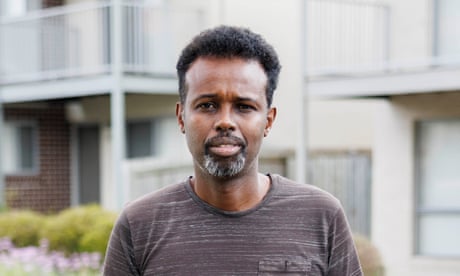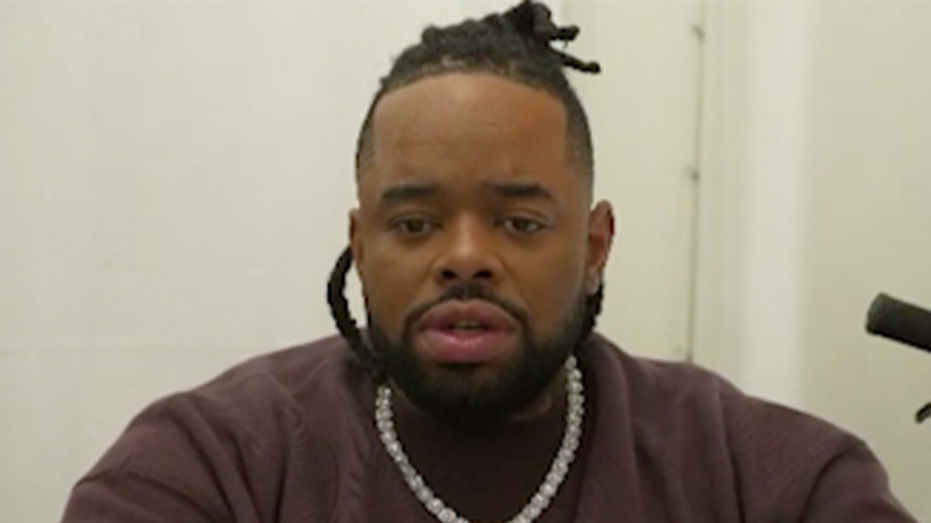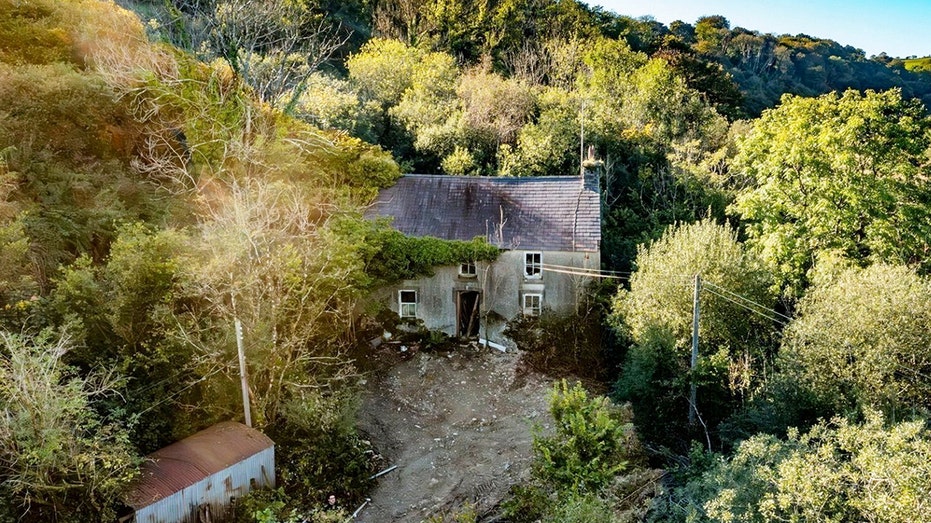- by foxnews
- 03 Mar 2025
‘I choose to forgive’: Brisbane cyclist explains why he sought leniency for driver who tried to mow him down
‘I choose to forgive’: Brisbane cyclist explains why he sought leniency for driver who tried to mow him down
- by theguardian
- 26 Dec 2022
- in news

In 2023 Abdirashid Farah Abdi's goal is to get back on his bike.
In 2021 it was to clock 1,000km on his NCM Moscow during nightly rides he hoped would salve the wounds of past trauma and help get his life back on track.
But Abdi's journey of recovery was derailed in the predawn gloom when - while riding to his home in Brisbane's outer south west - he had a run-in with Shelley Anne Alabaster. Or, more to the point, Alabaster ran into him.
Alabaster was behind the wheel of a red and bull-barred Nissan Patrol with jacked-up suspension when she bumped Abdi from his electric bike. At first, Abdi assumed it an accident. But Alabaster's intent was far more sinister.
The GoPro footage that documented the following 19 minutes seem like something from a horror movie.
Abdi flees on foot as Alabaster, a complete stranger, drives on to the pavement and ploughs through suburban fences in a fury of revving engine, blinding headlights and foul, racist abuse.
"I'm gonna kill you bitch," Abdi hears Alabaster yell as she terrorises him.
The Samsung phone that has been monitoring Abdi's rides now tracks his racing heartbeat as he vomits in sheer panic.
"I was certain that day that I was going to die," he tells Guardian Australia.
Abdi refers to the events of 30 October 2021 as "the incident". Perhaps even more remarkable than the incident itself, though, has been Abdi's reaction to it.
Earlier this month, Abdi submitted a victim impact statement to a Brisbane court that the presiding judge described as "one of the most extraordinary documents" he'd encountered during 35 years in the law.
In it, Abdi directly addresses his assailant, impressing upon the New Zealand-born mother of three the devastation she wreaked upon him.
"I am no longer the person I was prior to the incident," he writes.
He doubts he will ever be that person again. "You have transformed my life" in the worst possible way, Abdi tells Alabaster. And yet, he continues, Abdi finds no peace in Alabaster's incarceration.
Although the initial charge of attempted murder was dropped, Alabaster was sentenced to three years' jail after pleading guilty to a string of offences including assault occasioning bodily harm while armed.
But prison, Abdi writes, is "not the right place" for Alabaster.
"I [am] pleading with you to take this opportunity to seek help and transform your life for better," Abdi writes to Alabaster. "I forgive you from the bottom of my heart and wish you the best in life."
Abdi then addresses her judge, imploring compassion for Alabaster. Justice Peter Callaghan appeared to heed Abdi's call, releasing Alabaster on parole on 6 December, after she had spent 402 days in custody while awaiting sentence.
Abdi is glad. But, make no mistake, he still bears the scars of his ordeal.
"I've been reliving it every single day - it plays in my head in a loop," he says. "I can hear her voice. The red truck."
Almost 14 months later, though, it is not his own, but the fate of Alabaster that most troubles him. He rues the time Alabaster spent in prison. Abdi - a practising Muslim - regrets that she spent Christmas behind bars and the impact this would have had upon her children and partner of 15 years, people he describes as "innocent parties" to Alabaster's actions. Abdi feels sorry for her and worries the incident will define Alabaster and haunt her for the rest of her life. Mostly, though, Abdi fears Alabaster will be deported.
Now he is seeking to intervene with the immigration department to prevent Alabaster being sent back to the land of her birth under the Australian government's policy of deporting New Zealanders who have been sentenced to at least a year in prison.
"That would be a travesty of justice," Abdi says.
"I choose to forgive her, because I believe compassion and forgiveness is justice in itself.
"It's another form of justice."
To comprehend how Abdi, a victim of crime, could turn advocate for his assailant, one needs to understand Abdi's conception of justice - one forged from the crucible of civil war.
Abdi was born in Mogadishu, the fourth of eight children. Of his first 13 years he recalls a carefree time of soccer games and playing at the beach.
His innocence was shattered when simmering conflict exploded into the open in 1992, a year the UN refugee agency described as the most tragic in Somalia's modern history and one in which "extraordinary level of indiscriminate brutality" raged.
Abdi's family were among hundreds of thousands forced to flee. He recalls a "sea of refugees from every direction" at the Kenyan border, some atop camels, some on foot, some packed into stolen government trucks.
Then came the lack of food and water. Check points. Refugees getting robbed by militias.
"Everything was not pleasant," Abdi says.
The Abdis spent the next five years in a Kenyan refugee camp before their names were drawn in a lottery and they were able to move to New Zealand.
Abdi is forever grateful for the education he received there: high school, university and postgraduate diploma in international relations. But in 2008 Abdi migrated to Australia in search of opportunity. He was a man now, ready to start a family of his own.
While unrest continues to ravage the country of his childhood,
Abdi senses a mood of change among Somalis. There "are no more Rambos", he says. The Somali people have been worn down by more than three decades of violence from which none have been untouched.
Nor, of course, was Abdi. In 2019 his cousin was gunned down. But he knows all too well that, if his relatives seek to avenge that death with more bloodshed, the cycle of violence can only continue.
"People now realise that the best way to disarm people of their rage, their anger, is through love, compassion and forgiveness," he says. "I don't believe in harming anybody."
It is a philosophy of pacifism Abdi inherited from his parents but one he has not found is held widely in his adopted homeland.
"I don't know if it is appropriate for me to say this," Abdi says, "but in Australia they are obsessed with punishment. Crime and punishment."
Not that Abdi is ungrateful toward the country - quite the contrary.
"Of all the places I've been, I just love Brisbane," Abdi says. "It's a wonderful place to live and to raise a family."
Abdi understands the desire for retributive justice as innate to the human condition.
"It emotionally fulfils our need of feeling safe, when you have someone sent to jail on your behalf, or the state avenges on your behalf, it gives you this emotional satisfaction," he says.
"But, at the end of the day, nothing has been achieved."
Worse, punishment only fuels the problem, he says. Abdi describes prison as "the Oxford of criminals", a place from which his assailant might emerge embittered and only more dangerous. He is distressed by those who seek higher sentences, wanting more people in prison.
"In Queensland now there are adults, unfortunately, protesting for harder sentences for kids," Abdi says. "But no one has asked themselves: 'why are these kids committing crimes?' Do they come from broken homes? Do they have substance abuse? Have they been sexually assaulted? Why can a 14-year-old be away at 3am in the morning on a weekday going to other people's houses to steal a car?"
Abdi asks himself these questions. And recovering from his wounds allowed him time to reflect on what caused Alabaster to do what she did. His conclusion was as frightening as it may seem unexpected: "when all the circumstances come together", he now believes, everyone and anyone is capable of doing as Alabaster did.
"That day she was going to run someone over, because she was in a dark tunnel," he says. "I happened to appear in front of her. [But] she was just a conduit. What attacked me, or tried to run me over that day, was mental health and drug abuse. That's how I see it."
Abdi's compassion for Alabaster is genuine. He hopes she can conquer her demons, recover and make herself and her family proud. There's always an opportunity to set things right, he says.
And that goes both ways. Because, just like Alabaster, Abdi believes he has a choice between bitterness and compassion.
"I knew for me to recover and move on, I will have to forgive her, and for her to get better, she would have to be forgiven," Abdi says.
To him, compassion is "one of the greatest assets a human being has", and transcends class, race, nationality, religion and ideology.
"Compassion, forgiveness," he says. "It's found in every human being."
- by foxnews
- descember 09, 2016
'Spooky' property for sale in nature-drenched spot has a few strings attached
Located on 132 acres, a three-bedroom property described as "spooky" and "rare" is for sale in the village of Rhydlewis, Wales, not far from the coastline.
read more


